6







06 Heritage 2011: Education
October 28, 2011 www.plaintalk.net
LEFT: Baseball was a popular recess activity at Prairie Center #27. This photo taken in 1921 or 1922 features (back) Alvin Larson and Melvin Jaeger, and (front) Joe Mitchell, Oscar Jackson,
Gerhard Stensaas and Herb Wigdahl. This photo appears in the CD compilation “Clay County Rural Schools Scrapbook,” provided by the Clay County Historical Society
RIGHT: Pictured are students at Prairie Center #27 country school in Clay County. In front are Linda Glass, Elaine O’Connor, Daryl Jackson, Glen Olson, Gary Stensaas and Jerry Jackson.
Standing in the back row are JoAnn Stensaas, Madonna Chaussee, Beverly O’Connor, Melvin Davis, Marjorie O’Connor, Richard Stensaas, Bob Rabusch, and Mrs. Mehlhaf, the school’s teacher.
The date this photo was taken is unknown. This photo appears in the CD compilation “Clay County Rural Schools Scrapbook,” provided by the Clay County Historical Society.
Country schools loomed large
for students on first day of class
By David Lias
david.lias@plaintalk.net
Prairie Center Rural School certainly wasn’t a large
building, compared to the structures that greet today’s
elementary students on their first day of school.
To Richard Stensaas, however, the building looked
huge as he entered it on the opening day of the school
year to begin first grade.
“It was 1943, and of course at that time, everything
looked big, and I thought that was a pretty big place,” he
said. “I was kind of nervous and anticipating that day,
because it was something way new that I didn’t know
anything about.”
Stensaas, along with his fellow students, quickly
adapted to the routine of each school day, however.
“As time went on, I got used to it, and adjusted to the
teacher and the pattern of the day,” he said.
Students in first through eighth grades attended
Prairie Center. All of the students sat together in the
one-room schoolhouse.
“In that situation, when you had your class, you
would go up front and you had a place to sit with the
teacher,” Stensaas said. “Then you would go back (to
your desk), and we had our assignments to work on for
the next day.
“Then another class would move up front and have
their class, and then they would move back, and all
eight grades had to move through that,” he said.
“Sometimes, you would stop and listen to what the next
class was doing. Our teacher had to handle all eight
grades.”
There were four students in his class. At the time
Stensaas attended Prairie Center, total enrollment was
12 students.
“When I look back at those years, I always think that I was pretty lucky. We always had a good time.
It was always fun. Besides the class work, we all played together during recess, and a lot of us would ride
around the school. I still look back and say ‘that was fun.’”
RICHARD STENSAAS
His first teacher was Mrs. Kolb. She and her husband
operated a shoe store in Vermillion. He also remembers
at one time having Mrs. Westre as his teacher.
“I had probably at least 10 teachers over the eight
years I attended the school,” he said. “We didn’t have a
lot of teachers who were right out of college. We had all
women teachers, and most of them were middle-aged. I
had one that hadn’t been out of college very long.”
Stensaas said that students who lived a great distance
from school usually were transported to the building by
their parents. “I happened to be located only about half
a mile from the school, and we walked pretty near all of
the time, even during the bad weather,” he said.
Every student also brought his or her own lunch to
school each day. “We had to carry water in, and we had
indoor bathrooms in our schoolhouse, which was pretty
nice,” Stensaas said. “Of course, we had the old
wood/coal furnace.”
Keeping the fire burning in the furnace was one of
the duties of the Prairie Center teacher. “She was kind
of the janitor, too. Of course with certain things, like
cleaning up the blackboards or sweeping the classroom
– she saved those jobs for the students.”
One wall, in the front of the school, contained a large
slate chalkboard.
“The teacher had her own desk. It was nothing fancy,
and she tried to supervise us all,” Stensaas said. “The
teachers were responsible for everything.”
Courses at that time naturally included the three
“Rs” – reading, writing and arithmetic.
“They were really stressed,” Stensaas said. “And we
had spelling, of course, and art, penmanship, phonics,
things like that.”
He feels fortunate to have had such an experience.
“When I look back at those years, I always think that
I was pretty lucky,” Stensaas said. “We always had a
good time. It was always fun. Besides the class work, we
all played together during recess, and a lot of us would
ride around the school. I still look back and say ‘that
was fun.’
“What I especially liked, with that many students, is
that you got to know everybody,” he said. “They were all
in your community.”
Timeline of Education in Clay Co.
1954
• Construction of a new
Austin Elementary is
approved, as is the building
of a new classroom unit of
the Jolley school. Work is
finished the next year.
1958
• Additions are made to
both the Austin and Jolley
elementary schools.
1959-72
• The remaining
schoolhouses continue the
process of closing or
consolidating with larger
districts.
1961
• Construction is completed
on St. Agnes School.
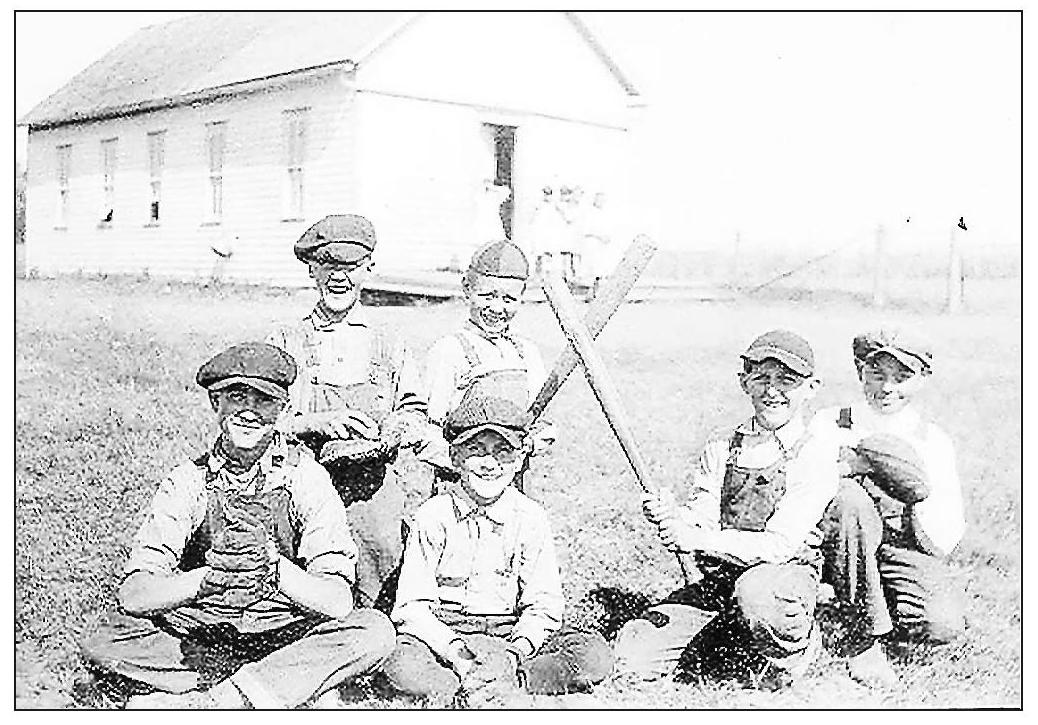
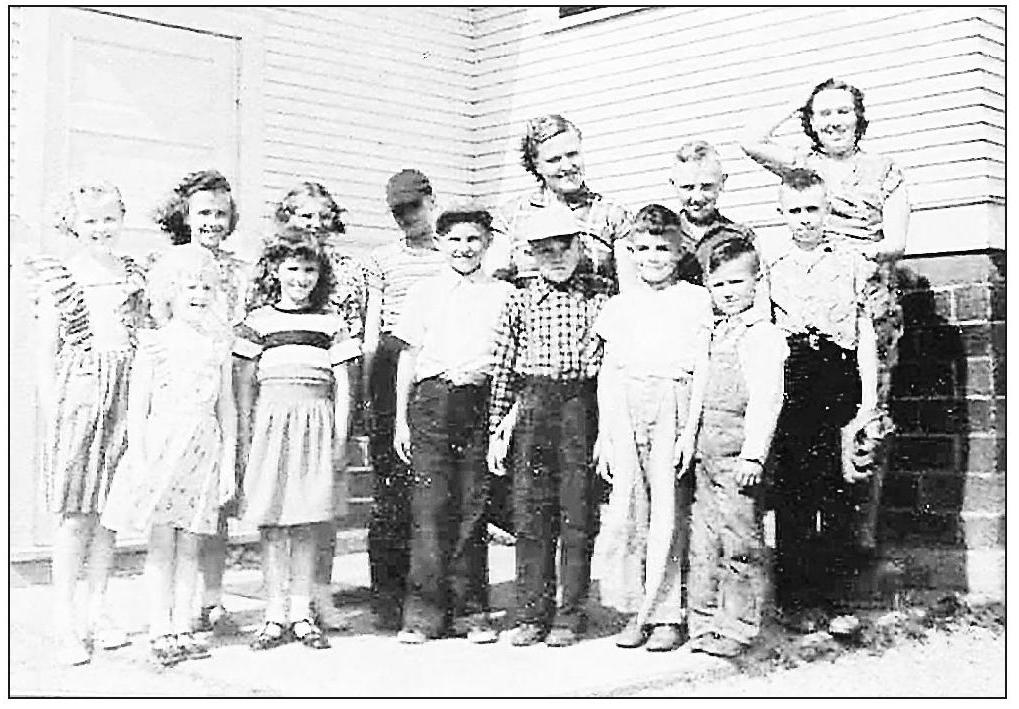


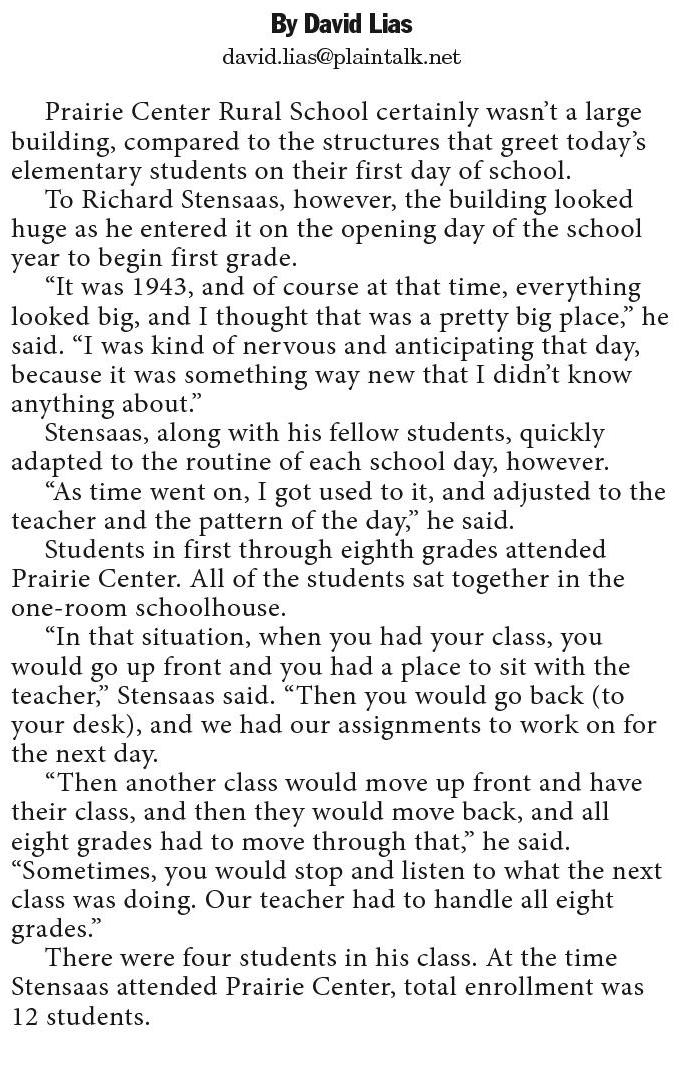
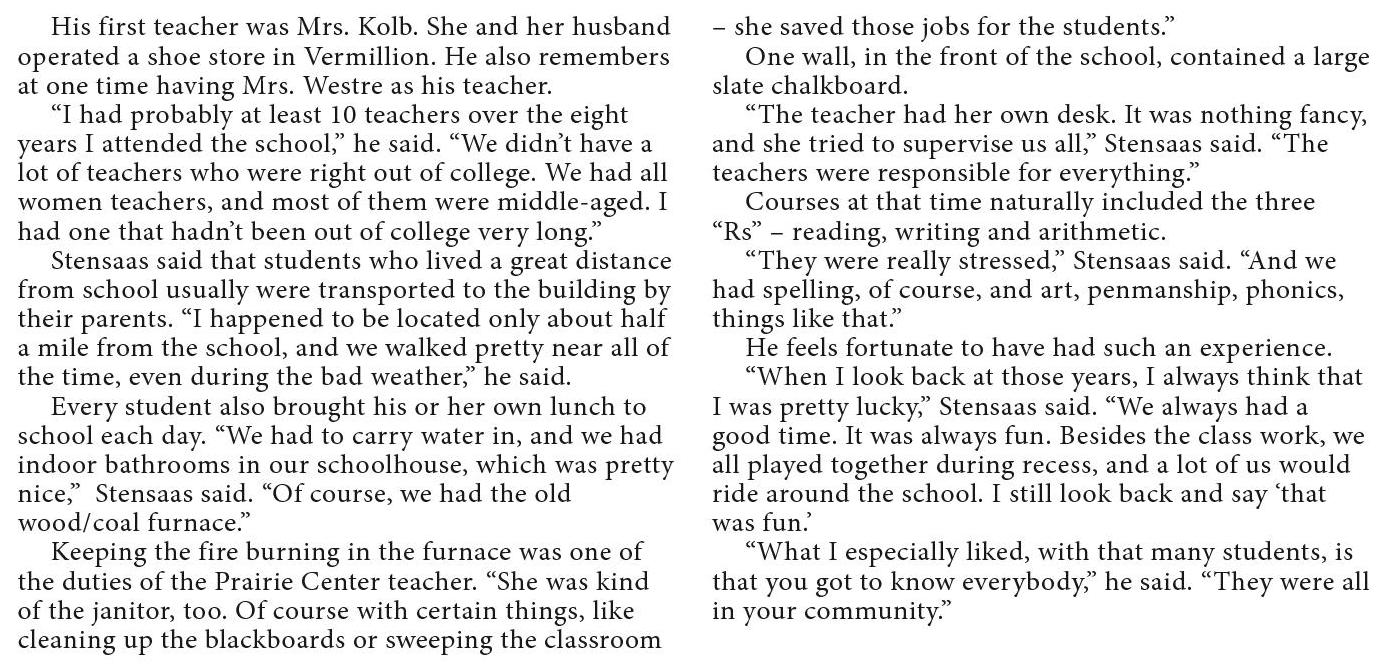


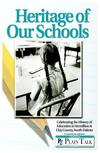

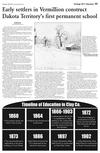
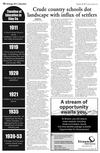
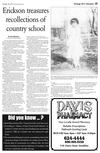
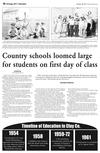
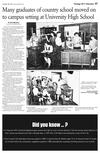
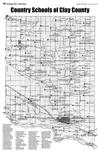

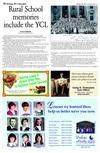


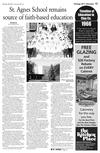
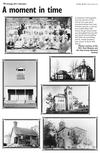
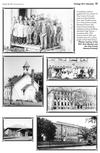
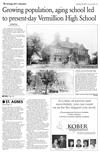
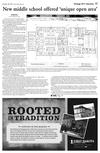
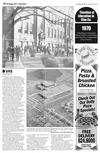


 Previous Page
Previous Page






